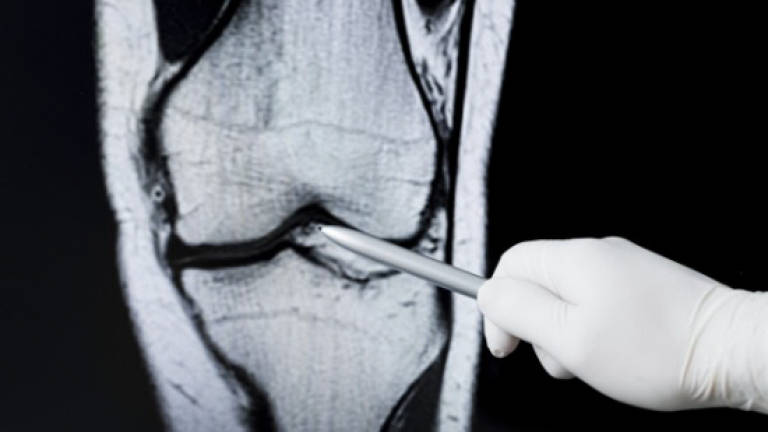New research could improve osteoporosis treatment

RESEARCHERS based in the US have investigated the beneficial role of a hormone, called PHT, in stimulating the reconstitution of bone cells called osteocytes. The study, published in the journal Nature, could lead to the development of new treatments for osteoporosis.
Parathyroid hormone (PTH) is already well known to rheumatologists. This hormone is secreted by the small glands at either side of the thyroid and plays a key role in regulating calcium distribution within the body. Its main role is to stimulate the release of calcium from bones, which is then absorbed in the kidneys to increase blood calcium levels.
PTH therapy is a costly treatment currently available in the US and Europe, generally used to stimulate bone formation in women who have already suffered at least two vertebral fractures. Daily PTH injections are administered by the patient after training by a healthcare professional. The injections take the form of pre-filled pens, similar to the insulin pens used for treating diabetes.
Now, researchers at Massachusetts General Hospital have discovered a signalling pathway that could improve this hormone-based treatment.
The scientists discovered that PTH stopped the action of certain enzymes (SIK2) that block bone formation. They then tested a series of SIK2 inhibitor molecules in mice that were found to regulate the expression of PTH target genes. They also identified a specific inhibitor capable of mimicking the action of PTH.
New inhibitors targeting these specific enzymes could give rise to new treatments and help improve bone density in osteoporosis patients. This could in turn help reduce the increased risk of vertebral and peripheral fractures. Fractures can occur in any bone in the body, but the vertebrae, the neck of the femur and the wrist are the most commonly damaged bones.
Not all menopausal women go on to develop osteoporosis. What's more, cases of osteoporosis are thankfully rare before menopause. Bones usually start to become more fragile from around 50-55 years of age.
While treatments are available, lifestyle factors can be crucial in preventing osteoporosis. Safe sun exposure is recommended to boost vitamin D production, exercise is important for maintaining and increasing bone density, and smoking, alcohol (two glasses per day maximum) and caffeine (coffee, cola, energy drinks) should be limited, for example. A healthy diet is also important.
The study is available here — AFP Relaxnews